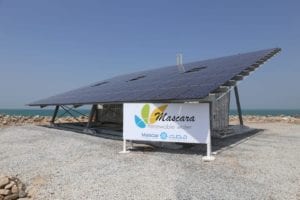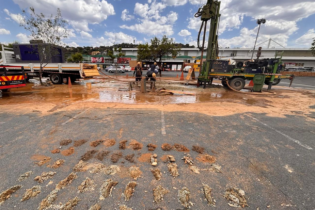South Africa’s first solar powered desalination plant is set to be commissioned in the Western Cape later this year.
The project, which was initiated by Prof. Erwin Schwella, Professor of Public Leadership at Stellenbosch and Tilburg Universities with the Municipality of Hessequa, is being co-funded by the Western Cape Government through the drought relief fund, and by the French Treasury, through a fund dedicated to the implementation of innovative green technologies. The plant is expected to come online by the end of October 2018 at Witsand in the Western Cape’s Hessequa Municipality. Witsand was selected as the site for this innovative project as it often suffers from critical water shortages, even outside of drought periods.Addressing peak pressure
According to the municipality it will produce 100kl of fresh water per day to address the normal local water requirement and will only be powered by solar energy. The plant will also be able to supply drinking water outside of sunlight hours through a connection to the local electricity grid. The municipality says the project will be used specifically to address the December holiday peak period with a daily production capacity increased to 300kl.The technology for the project was developed by the French Company Mascara Renewable Water and brought to South Africa by their local partner TWS-Turnkey Water Solutions.
It is the world’s first reverse osmosis desalination technology coupled with photovoltaic solar energy without batteries, designed to supply coastal or borehole-dependent communities, with drinking water at a competitive price and without CO2 emissions.





